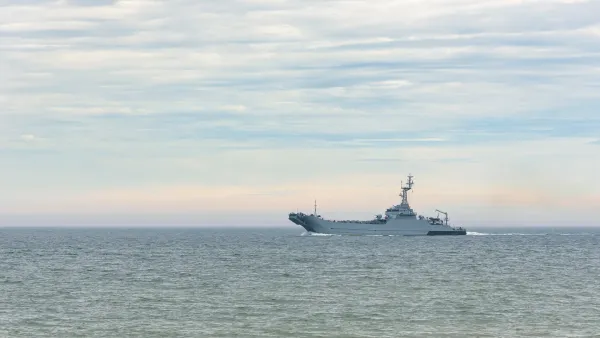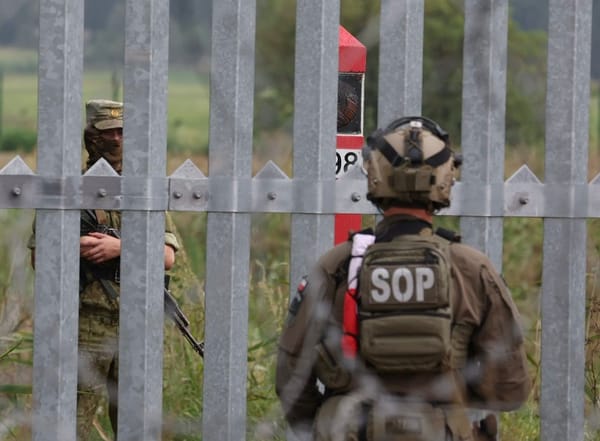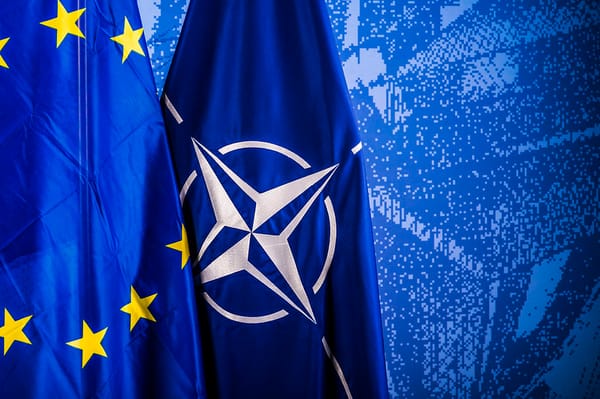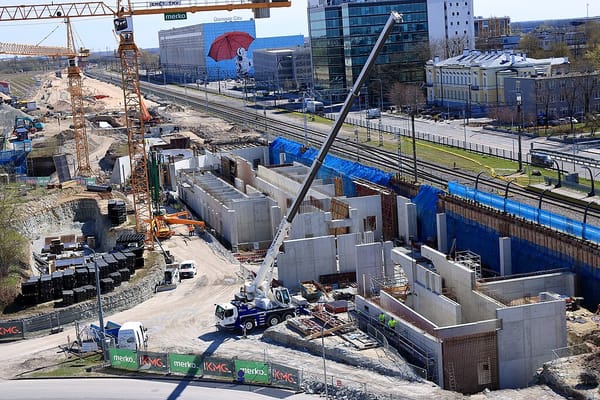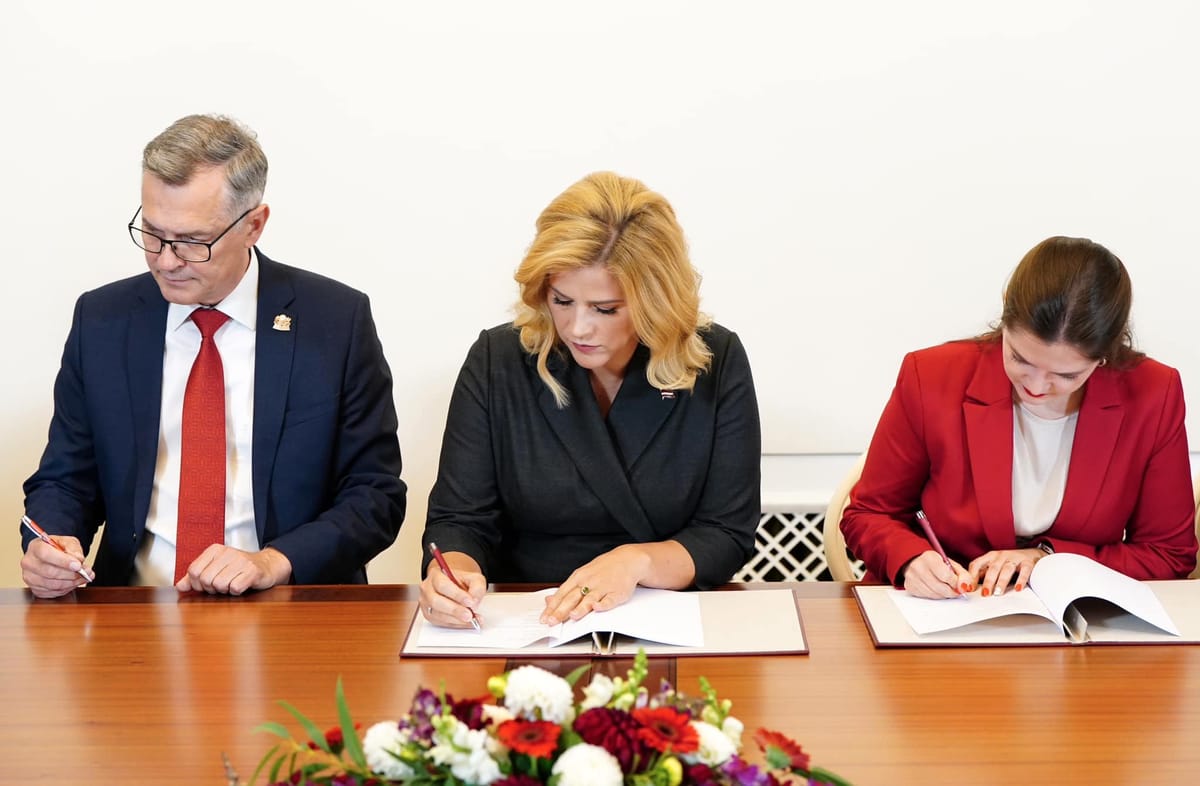
All three Baltic countries now led by women, as Silina becomes Latvia PM
Evika Silina asked to be judged by her achievements, as she became Latvia’s new prime minister and its second-ever female premier on Friday, 15 September.
Silina, 48, is a member of the centre-right party Jauna Vienotiba (New Unity) party that won Latvia’s general election in late 2022 and then established a coalition government with 53 MPs.
This was the same number of seats with which the new Silina-led coalition secured the formal confidence of the Saeima on 15 September 2023, after which Latvian President Edgars Rinkevics entrusted her with the task of forming a new government. The next Latvian parliamentary election is scheduled for 2026.
Political newcomer likely to maintain pro-Ukraine stance
After formally becoming PM, Silina tweeted: “The declaration of the new government has been signed, at its centre is the Latvian person as this country’s main value. We undertake to work together in good faith for the strengthening of Latvia’s security, societal growth, and the well-being of today’s and future generations.
“Next week we will decide on compensating for the disproportionate increase in electricity bills, we will immediately start working on the state budget for 2024,” she added.
Siliņa wrote to US Secretary of State Anthony Blinken that “Latvia is standing ready to work together with our close friend and ally US to advance our strategic security partnership, stand firm in our support to Ukraine, safeguard shared democratic values and deepen our economic ties.
For his part, Blinken said he remains “strongly committed to our priorities for US-Latvian cooperation: support Ukraine, bolster NATO, combat corruption, enhance our economic ties, and build more inclusive democratic societies.”
All three Baltic countries have female PM for first time
Estonian Prime Minister Kaja Kallas wrote “Congratulations, Evika Silina , on becoming prime minister of Latvia. I look forward to working together side by side to make our ties as neighbours even closer and our region more secure and connected. Referring to her predecessor Karins, she added “thank you, my dear friend… for the excellent cooperation.”
Lithuanian Prime Minister Ingrida Simonyte wrote “Congratulations and best wishes to Evika Silina on the appointment as the new Prime Minister of Latvia! I’m confident we’ll keep working closely on the priorities we share – security and prosperity of our region and Europe, and we’ll keep supporting Ukraine’s fight for freedom.”
European Commission President Ursula von der Leyen wrote “Congratulations Evika Silina on your appointment as Prime Minister of Latvia. I welcome your deep European conviction and strong support to Ukraine and look forward to working with you – for Latvia and for Europe!”
Karins backs newcomer after failing to shore up support
New Unity is a political party in Latvia with a liberal-conservative ideology on the centre-right of the political spectrum. From its inception in 2010, it has consistently been part of Latvia’s coalition governments and played a leading role in the cabinets of Valdis Dombrovskis and Laimdota Straujuma. New Unity is affiliated with the centre-right EU political family the European People’s Party.
Since January 2019, the party has been a member of the incumbent coalition government, with Karins serving as prime minister. After winning the general elections last October, an election influenced by neighbouring Russia’s conflict in Ukraine and economic challenges, New Unity formed a coalition with the National Alliance and the new centrist electoral alliance United List, pledging to prioritise security, education, energy, competitiveness, and quality of life.
A law graduate, Silina was elected to parliament in October 2022, when she stood as a New Unity candidate and secured a seat in the 14th Saeima. Silina was appointed as the welfare minister in the government of then-prime minister Krisjanis Karins last December. Following the resignation of Karins on August 16, New Unity proposed Silina as its prime ministerial nominee.
Earlier this year, Karins attempted to expand his government by including the Progressives, but this move was vetoed by the National Alliance, and by mid-August, he announced his departure from leading the NATO- and EU-member nation due to a coalition rift.
Karins said his goal was never to cling to power: “For any country, there are difficulties when someone tries to hold on to their office.” He wrote: “Latvia must continue its development path, becoming stronger, wealthier and more visible in the world – I am sure that under the leadership of Evika Silina we will succeed.”

